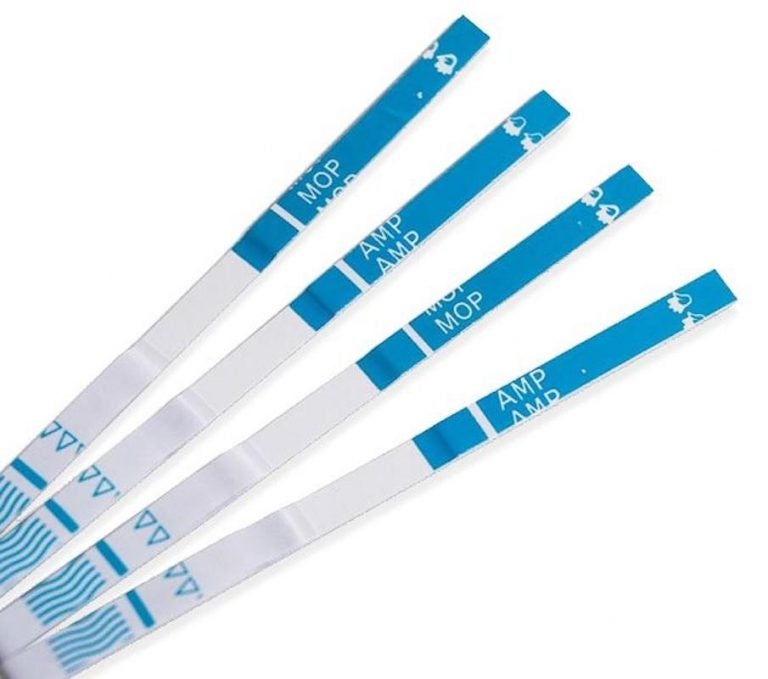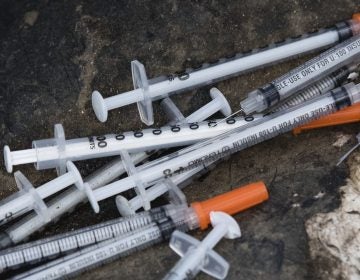To curb overdose risks, Philadelphia tries fentanyl-testing strips
The hope is that when people become aware that their drug has fentanyl in it, they'll be more cautious.

The test strips cost about a dollar each and come from Canada. Philadelphia’s health department recently started distributing them to a few places, including Prevention Point. (JHU Bloomberg School of Public Health/Bloomberg American Health Initiative)
Philadelphia is joining a handful of cities in distributing fentanyl-testing strips to people who use illicit drugs. The aim is to let people know whether their drugs contain fentanyl, a synthetic opioid that is a lot more potent than heroin, and in doing so, reduce the risk of an overdose. Last year, Philadelphia experienced 1,217 drug-related deaths, and experts point to fentanyl as a main driver of the increase.
Prevention Point Philadelphia recently started using the strips on a very limited basis through its outreach program and needle exchange.
“Some people are surprised to see [fentanyl] show up in what they’re buying,” said Silvana Mazzella, the group’s associate executive director.
Even if their drugs test positive for fentanyl, people still may use them. Mazzella says the hope, though, is that when people become aware that their drug has fentanyl in it, they’ll be more cautious.
“I think what it will change, if we continue the education, is that people need to use differently, they need to use safely, and not do their whole shot right away,” she said. “To see how they react to the substance.”
The test strips cost about a dollar each and come from Canada. Philadelphia’s health department recently started distributing them to a few places, including Prevention Point. The initiative is in the very early stages of rollout.
“We believe that [fentanyl-testing strips] can be helpful in certain settings and with some users, but we still have a lot more to learn about who might benefit most from access to these strips,” the department wrote in an email statement.
The strips have another important purpose: to help get people into treatment. As it stands, an individual must test positive for opioids in order to qualify for something like methadone or suboxone. But fentanyl doesn’t come up on regular drug tests. Mazzella said more and more people are coming in wanting treatment, but they’re testing negative for drugs because they’ve only taken fentanyl.
“They are likely to not get approved because it doesn’t show up in their system,” she said.
That people only have fentanyl in their system has been a recent shift, she said, but the strips — which can test for the drug in urine — are accurate and can address that problem.
WHYY is your source for fact-based, in-depth journalism and information. As a nonprofit organization, we rely on financial support from readers like you. Please give today.




